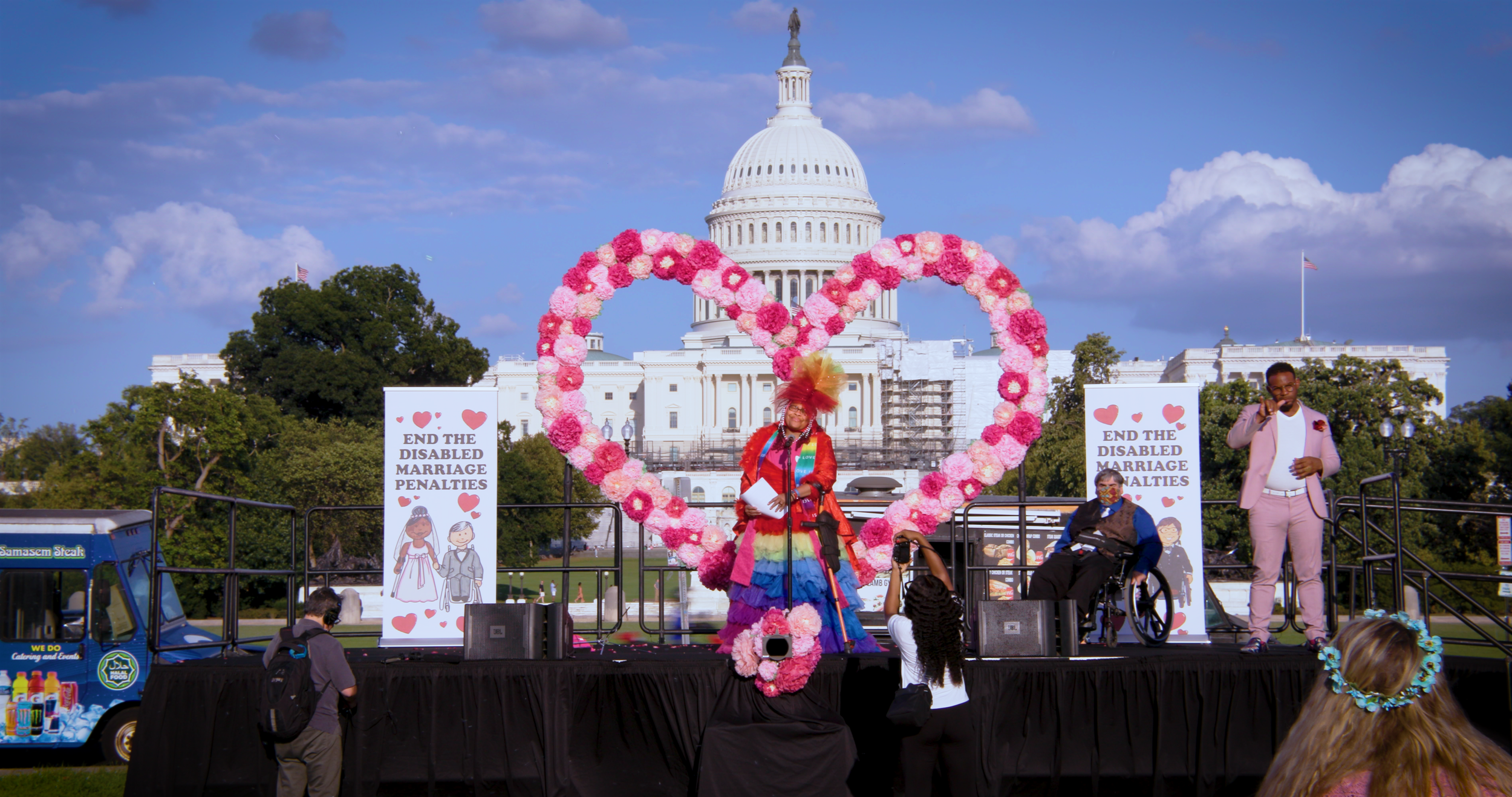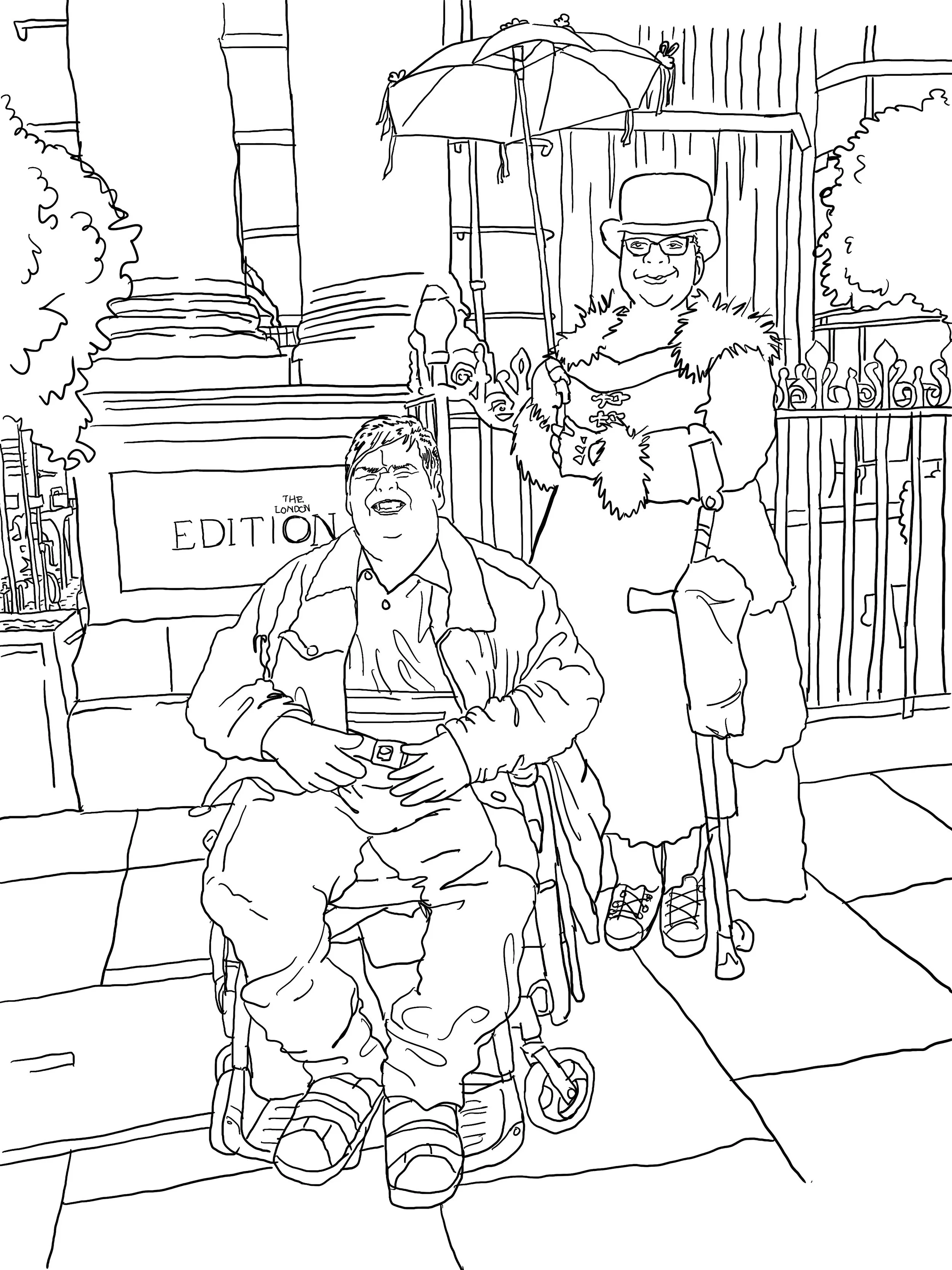Resources
WHAT ARE
DISABLED MARRIAGE
PENALTIES?
Many people with disabilities receive benefits like Supplemental Security Income (SSI) or Disabled Adult Child (DAC). The federal agency Social Security Administration (SSA) is in charge of these benefits. They provide healthcare and a small amount of money every month. Many benefits have “marriage penalties,” meaning that they are reduced or completely lost if the person with disabilities marries or forms a life partnership. These rules unfairly punish people who get married. They are unfair and incredibly out of date. Some of the rules were created in the 1950s!
WHO DO THEY
IMPACT?
According to the SSA, over 8 million Americans rely on disability benefits for healthcare and to meet other basic needs. For many disabled Americans, getting married means losing income, healthcare, and potentially risking their lives.
HOW CAN I
HELP?
The Disability Rights Education and Defense Fund (DREDF), a national law and policy center dedicated to advancing the rights of people with disabilities, is currently working to address the marriage penalties faced by people with disabilities who are receiving benefits from SSA.
LEARN MORE. You can learn more about marriage equality for people with disabilities at DREDF’s page on marriage equality and join advocacy efforts: https://dredf.org/marriage-equality/
SHARE YOUR STORY. DREDF is working with other organizations and impacted individuals to gain full marriage equality for people with disabilities. As part of this effort, we are collecting stories from people who have been affected by these penalties. Nothing about anyone's story will be shared without their permission. We hope to hear from you. Want to share yours?: https://bit.ly/love-tax
RAISE YOUR VOICE. Contact your Member of Congress by calling, writing a letter, or scheduling a visit. DREDF’s Marriage Equality Toolkit includes sample language, and tips for reaching out to your congressional representatives.
BENEFITS ARE TOO LOW
JOHN OLIVER EPISODE ON
DISABILITY BENEFITS
WITH PATRICE
Last Week Tonight with John Oliver created a great episode on the US disability benefit system which answers many questions and features Patrice! This video is a great primer for a deeper dive into the benefits system.
HOW DO I RAISE MONEY
AS A DISABLED PERSON
WITHOUT IT IMPACTING
MY BENEFITS?
In the film, Patrice finds a non-profit called, HELP HOPE LIVE, which she used to be able to fundraise for her van online without it impacting her benefits.
HELP HOPE LIVE is a nonprofit that offers a safe and supportive way to raise funds for medical expenses and related costs without jeopardizing key benefits the disability community relies on for coverage.
For more than 40 years, Help Hope Live has been helping clients like Patrice access the necessary care and equipment to live their lives as fully and independently as possible.
Help Hope Live is different from other crowdfunding sites. They provide one-on-one fundraising help, a customizable campaign page, and bill pay support—all designed to help make it simple, so you focus on what matters most: your health and quality of life.
For more information, visit www.helphopelive.org or call 800.642.8399.
MORE INFORMATION
DISABILITY
LANGUAGE:
“DISABLED PEOPLE” or “PEOPLE WITH DISABILITIES”
While “disabled people” (identity first language) is typically preferred in Canada and The United Kingdom and “people with disabilities” (person first language) is more widely used in the USA both terms can be used interchangeably and are accepted.
Evolving Disability Language:
Avoid condescending euphemisms such as, “handi-capable” or “differently abled”. Instead use “disabled people” or “people with disabilities.”
In reference to people without disabilities avoid words such as “able-bodied”, “normal”, or “healthy”. Instead use “non-disabled”.
Outdated language to avoid: handicapped, retarded, psycho, lame, imbecile, crazy, and insane.
WRITING ABOUT
DISABILITY
See this glossary created by Filmmakers with Disabilities (FWD-Doc) for useful terms to know when writing about disability which was created in conjunction with our film’s executive Producer James LeBrecht and Producer Kyla Harris who are board members:
They’ve also create a more comprehensive toolkit for writing about disability and inclusion in film:
PATRICE: THE MOVIE
THE COLORING BOOK!
Patrice and a bunch of other disabled artists created a PDF Coloring book for disabled marriage equality which you can download below!
Featured artists include:
Patrice Jetter
Johnny Fifles
Emma C.
Janine Leffler















